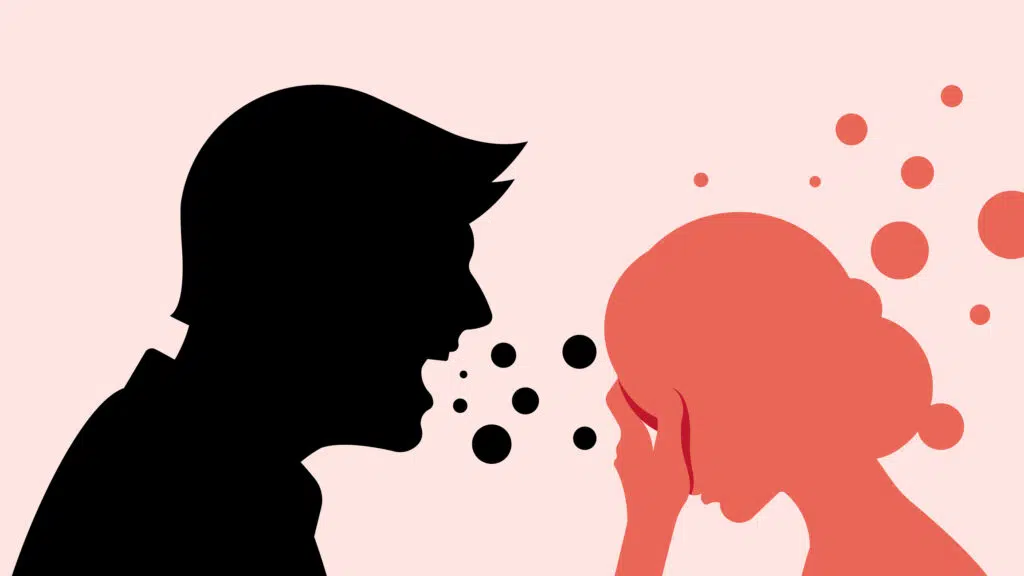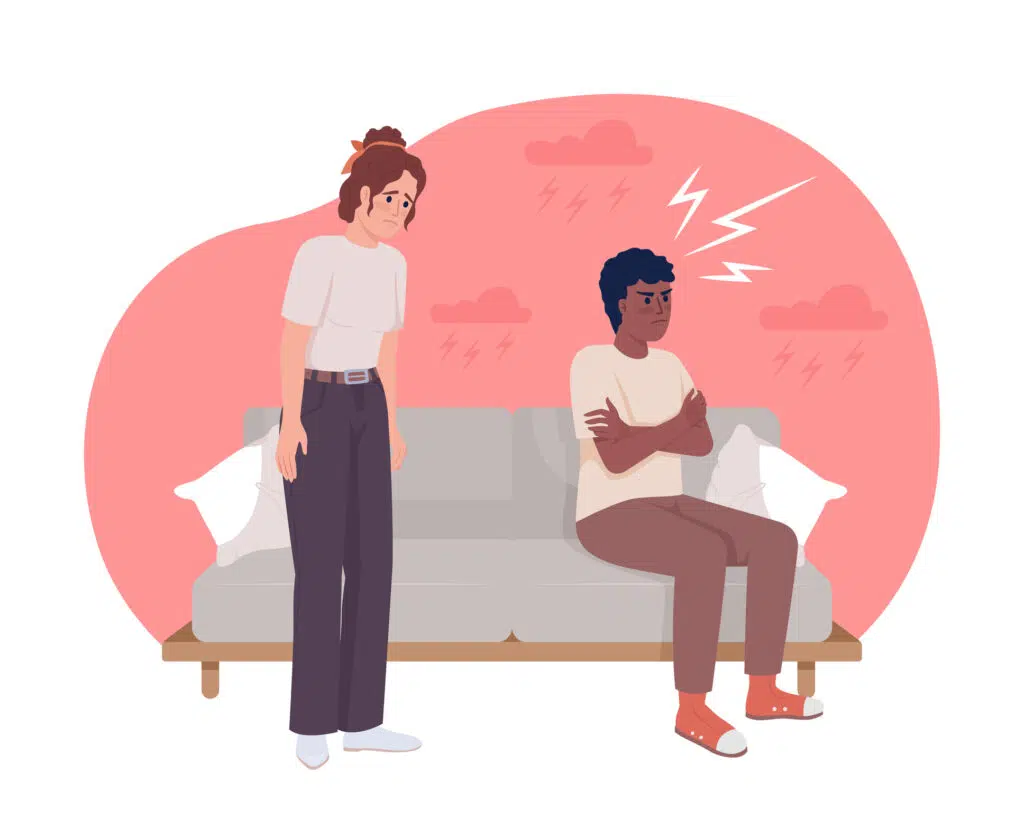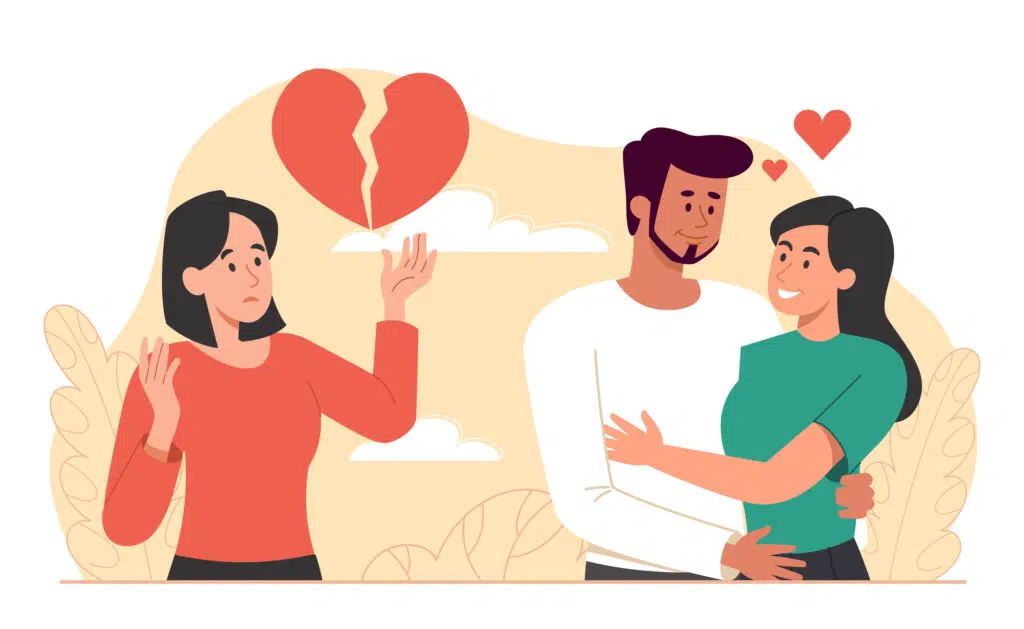Is My Relationship One-Sided?

Do you feel like you’re doing all the work in a relationship? When a relationship is one-sided, it can create stress and conflict. If one partner invests more energy and effort to make the relationship work, it creates an imbalanced dynamic that can be draining in the long haul. In this article, we talk about how to spot the signs you’re in a one-sided relationship and what to do if you think you might be in one.
The Effects Of A One-Sided Relationship
Relationship dynamics can naturally shift and change throughout your time together. It’s common for couples to feel like a partner could do more around the house, or maybe they would love it if they were more spontaneous.
No one relationship is perfect, but a one-sided relationship feels like one of you significantly puts more energy, emotional investment, time, and work into maintaining the relationship. One of you gives it all you have, and the other takes it without offering anything meaningful. The relationship is imbalanced. Whether someone is putting in more emotional or financial effort, the point is that you don’t feel like you are weathering the storm together. You are very much alone in your efforts.
It’s both partners’ responsibility to nurture the relationship together. When a person is left to do this alone, it can lead to resentment, anger, conflict, and bitterness, leaving them feeling insecure and lonely.
6 Red Flags That Your Relationship Might Be One-Sided
If you think your relationship could be one-sided, you may notice signs that your partner is not reciprocating your energy, or maybe you’re taking on too much, and now you’re stuck in a pattern of behavior. Either way, here are six signs of an unbalanced relationship.
- Lack Of Effort And Relationship Investment
Relationships don’t magically grow by themselves. While you can have a spark and an initial connection, there needs to be a desire to continue. Creating and maintaining a healthy relationship requires commitment and effort from both parties. If one partner starts to notice disinterest, it can cause serious problems. Depending on your relationship, a lack of effort could look different like:
- Little interest in spending quality time together
- Feeling dismissed or belittled
- No interest in resolving conflicts
- Neglecting physical intimacy
- Refusal to compromise
- You Are Always The Initiator Or Planner
If you’re always the planner, it doesn’t automatically mean you’re in a one-sided relationship. It’s very natural in relationships to lean into your strengths and weaknesses as a team. Maybe one of you is very organized, so plans a lot of date nights and trips, while the other focuses on creating the household budget.
The running theme in a one-sided relationship is that you often don’t get anything back. So if you find you’re always initiating or planning, you may feel like you’re taken for granted. You’re always the person initiating conversations. If it’s you who makes compromises and never your partner, it could be a sign that you are in a one-sided relationship.
- Your Needs And Feelings Are Not Being Prioritized
Never knowing where you stand or feeling undervalued by your partner are red flags. If your partner always puts their needs ahead of yours and you feel like an afterthought, it’s time to seriously think about the future of your relationship. If you feel drained and stressed after spending time with your partner, it can feel like your needs are constantly unmet. While it’s painful to realize you may be in a lopsided and unbalanced relationship, it could be the right time to evaluate the relationship.
- Mismatched Levels Of Emotional Support And Communication
A one-sided relationship lacks balance, which can look like one partner investing more emotional support and communication into the relationship. Ultimately, this type of relationship can wear you down because you feel like you’re doing all the work. Being in a one-sided relationship is not a mutual decision that two individuals make together. That’s why so many negative emotions, like resentment, loneliness, and anger, can come from it.
- Lack Of Mutual Growth And Shared Goals
A relationship consists of individuals with different interests, goals, and values. While it’s normal to have shared interests, typically, couples have to actively meet somewhere in the middle. This could be checking in to make sure you’re both on the same page with short-term and long-term goals. In a one-sided relationship, you’re not on the same page or even reading the same book. There is a lack of effort to grow together and create and work toward goals that you both want.
- Your Partner Shows Disinterest Or Avoidance
Suppose you constantly second-guess yourself, feel insecure, do all the heavy lifting, and feel like you’re at the bottom of your partner’s priority list. In that case, it can significantly affect your emotional and mental health. If your partner avoids difficult conversations, spending time with you, or shows general disinterest, it could signify a deeper problem.
What To Do If You Suspect Your Relationship Is One-Sided?
Whether you’re carrying the relationship or not putting the effort in, a one-sided relationship isn’t sustainable for long-term happiness and health.
If one of you is dealing with a lot of stress, maybe they are completely overwhelmed elsewhere and have nothing left to give in the relationship. Sometimes, one-sided relationships can be caused by problems one of you may have, like work stress, financial pressure, health issues, or mental health concerns.
So, how do you deal with a one-sided relationship? The truth is that you need to be honest with yourself.
If you suspect you’re in an unbalanced relationship, there are steps you can take:
- Speak to your partner – set aside time to talk to your partner. Relationship communication is ongoing, so create a regular check-in routine to talk about your concerns and needs.
- Set boundaries – start to set personal boundaries on your time, resources, and emotions. Be clear about what you will and won’t tolerate in the relationship and from your partner.
- Change behavior – adjusting behavior for both you and your partner is often necessary to restore balance.
Another option is to consider counseling for couples. Couples therapy can help the partner taking on less to contribute more and the partner dealing with too much to take a step back, if both partners wish to continue the relationship. A couples therapist can also help you address codependency issues that could contribute to any problems and develop communication skills that support a healthy and fulfilling relationship.
Finding Balance And Happiness In Relationships
Ending any relationship is hard and complicated. Sometimes, it can feel like you are at breaking point, and despite trying, your partner refuses to contribute to the relationship. If, even after communicating your concerns, nothing changes, it could be time to end the relationship. Make sure to speak to your support system. Whether it’s your family, friends, or therapist, consider your reasons for staying or leaving so you can make the best decision for you.
One-sided relationships can be fixed, but they require work and effort from both partners. Equality and balance need to be restored. Relationships can seriously affect your mental, physical, and emotional health. An unbalanced relationship isn’t healthy for either partner. If you think you are in a one-sided relationship, be honest with yourself and weigh up your options.
If you’re unhappy in your relationship or would benefit from speaking to an unbiased third party, book an appointment online at Thriving Center of Psychology. We have offices located in most major cities, including Seattle, Las Vegas, and Austin.

How to Move On After a Friendship Breakup
Friendship breakups can sting just as much as a romantic breakup. After all, you’re experiencing a loss of shared history and an understanding of each other that can leave you feeling lonely and isolated. Not all friendships are forever, but moving on from the loss of a friendship does take time and some self-compassion.

Signs You’re in a Toxic Relationship
A toxic relationship can chip away at your well-being and happiness. Toxic partners can be manipulative and charming, making it difficult to recognize the signs that you’re in a toxic relationship. You deserve to be in a supportive and healthy relationship.

10 Common Marriage Reconciliation Mistakes to Avoid After Infidelity
Infidelity can leave couples devastated. If you’ve been affected by infidelity and want to salvage your relationship, rebuild trust, or make a tough decision, keep reading for 10 common reconciliation mistakes to avoid after infidelity.

Survey: 72% of Americans are Stressing About the Upcoming Presidential Election
Political viewpoints in the U.S. have always been contentious, but is the impact of politics in the United States making it difficult for people to live their everyday lives? With some anticipating another brutal and long campaign season ahead of the upcoming 2024 presidential election, nearly half of Americans say politics is negatively impacting their mental health.




